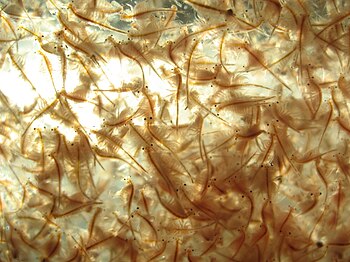Discus fish in my opinion are one of the most beautiful fresh water fish you'll keep. You will hear that clown loaches or cichlids are more fascinating however it’s not the point. With their beauty comes a price Discus can cost in upwards of three hundred dollars a fish. I do not recommend anyone spending over 100 bucks a fish. With all being said where I’m from here in Michigan you will pay approximately seventy five dollars for an adult and a little less for just a juvenile which can be approximately 35 dollars or so.
How would it sound if you merely had to purchase a few fish and that’s it? With these tips you will have a very good chance to achieve just that.
Discus Fish Breeding - Setting Up
By now you recognize caring for discus is great however it's only the very first part of the hobby. To save money on these pricey fish I want you to take it to a higher level. Discus fish breeding is the amusing and exciting method
to save money on your discus. Keep at heart this isn't as simple as it sounds but it seriously is not as complicated as it sounds either. Due to the lofty cost of the fish. Discus fish breeding has become very popular among hobbyist during these recent times. In some cases the discus will even breed without any distinctive attention providing you with a lovely surprise in a handful of weeks.
Discus Fish Breeding - It’s Time To Start
With discus fish breeding there are a few ways to get set up. Here are a couple of options to start you out correctly. First the easiest choice. To consider the simple methods speak with your dealer and allow them to know you wish to buy a mating couple. This would be the fastest and the most expensive system to start the discus fish breeding process. Certain mating pairs can cost between one hundred and 300 dollars.
The next choice is to buy a collection of a minimum of six juvenile fish. When utilizing this practice it is not one hundred percent guaranteed however it typically will succeed in the majority of cases.
Discus Fish Breeding - The Mom The Dad
With some time, in your main tank you'll start to note who mating pair will be. What I mean by this is you will observe two fish pair off and they will start defending their territory against all of the other tank mates. Watch this behavior for a few days if it keeps up they will be mom and dad.
Now it is time to move them both into the breeding tank. A tank which is independent from your main tank is considered a breeding tank. When breeding discus fish it is suggested to have at least a 20 gallon tank for the two fish.
Discus Fish Breeding - Breeding Tank Tips
Use this easy tip before you move the breeding pair into the "Discus fish breeding tank" to maintain them less stressed. Fill the breeding tank with water from the main tank therefore the ph factors will remain stable. You would
like to keep the base clear, no rocks no gravel. The reason for this is to allow it to be easier to maintain the water clean by removing any leftover food and waste. The only decor you need inside the tank is really a vertical spawning surface.
Discus Fish lay their eggs like angel fish do. They prefer to spawn their eggs on the vertical surface. There are many varieties of vertical surfaces you can use. In my case I use an upside down ceramic pot or some sort of plant like a Java fern. If your fish seem to be stressed or are trying to hide, it is a good technique to put in a plant or two giving them shelter making them feel unstressed. Filtration is another important factor. I like to use a small power filter as well as a sponge filter. I take advantage of the power filter with a bag of peat moss, this technique keeps the ph level in check.
SMALL IMPORTANT BREEDING TANK SECRET
Keep in mind the Discus fish breeding tank is usually a lot smaller than your original tank. You have to watch this tank for ammonia spikes and water temp. fluctuations. Cleaning the waste from this tank everyday is a must do chore for breeding. This is essential with the Discus fish breeding process. Discus like clean water and will not breed without it.
|







